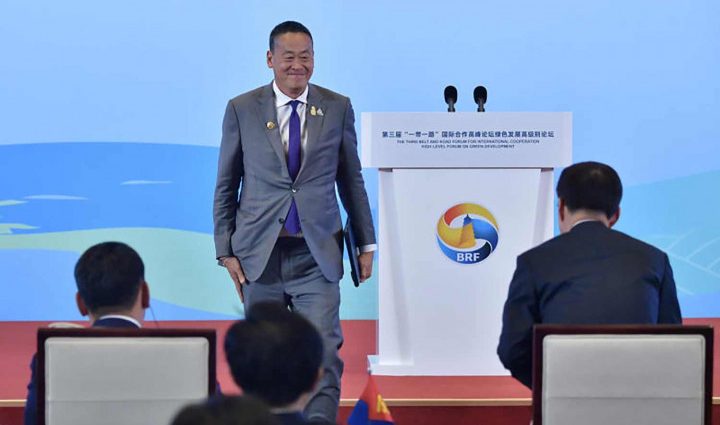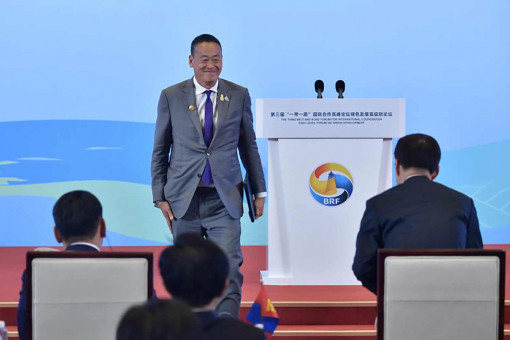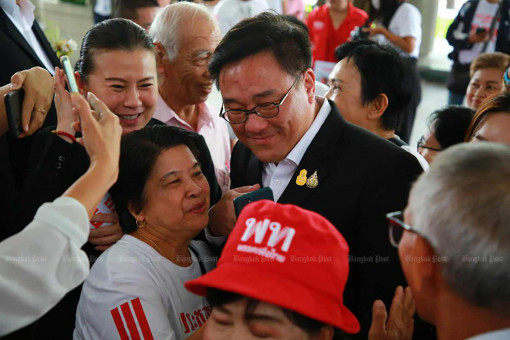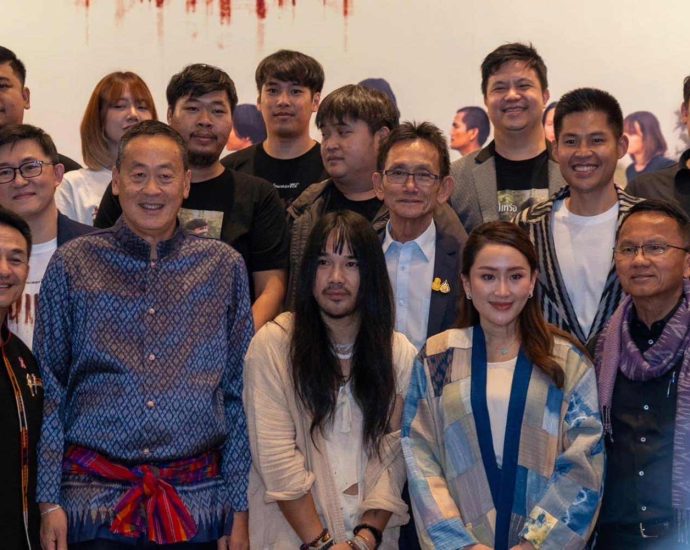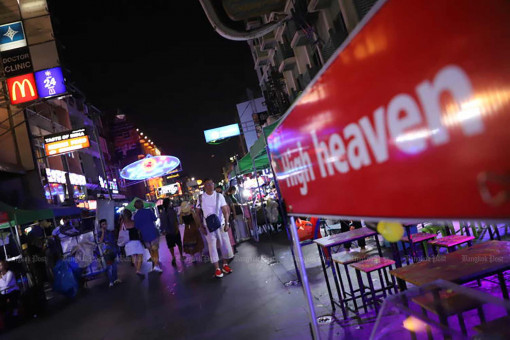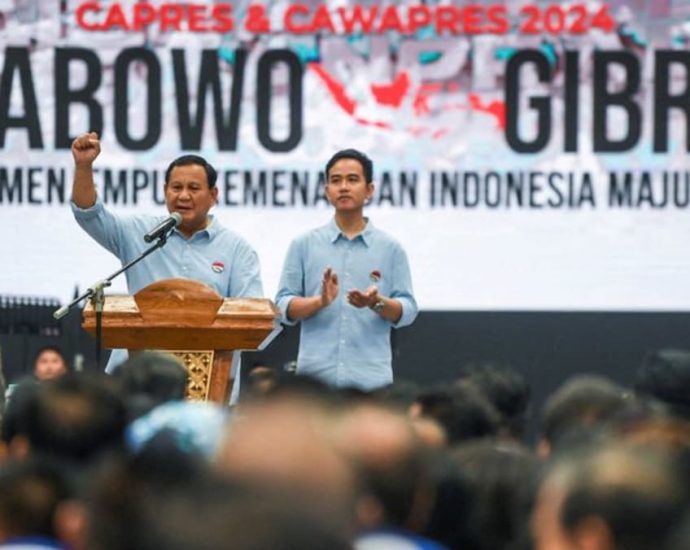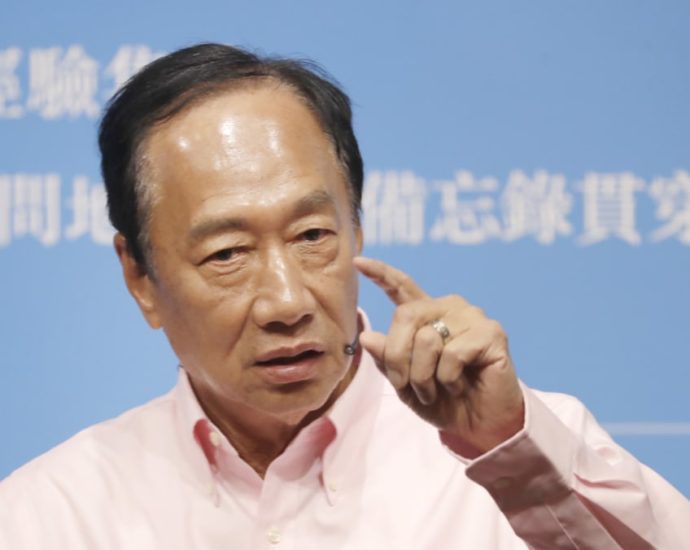Most satisfied with Srettha’s overseas trips: Nida Poll
PUBLISHED : 29 Oct 2023 at 10:01

A majority of people are satisfied with Srettha Thavisin’s overseas trips as well as his overall performance as prime minister during his two months in office, according to an opinion survey by the National Institute of Development Administration, or Nida Poll.
The poll was conducted on Oct 24-25 by telephone interviews with 1,310 people aged 18 and over of various levels of education, occupations and incomes throughout the country to compile their opinions on Mr Srettha’s visits to many countries after taking office.
Asked what they were particularly interested in from Mr Srettha’s overseas trips during the past two months, with the respondents allowed to pick more than one answer, the answers chosen by them were as follows:
• 39.01% said they had not followed news on his overseas trips at all
• 24.43% were interested in his meetings with leaders or important persons of other countries
• 21.83% his dress/clothes
• 19.69% his media interviews
• 19.08% his postures or body languages
• 10.31% reception by host countries
• 1.98% had no answer or were not interested
As for those who followed news on Mr Srettha’s overseas trips (799), when asked whether they were satisfied, a majority or 69.71% said “yes” – 46.31% moderately and 23.40% highly. On the other side, 20.27% were not satisfied and 9.37% not satisfied at all. The rest, 0.63%, had no answer or were not interested.
Asked whether they were satisfied with Mr Srettha’s overall performance as prime minister during the past two months, a majority or 55.27% said “yes” – 36.87% moderately and 18.40% highly. On the other side, 26.87% were not satisfied and 13.74% not satisfied at all. The rest, 4.12%, had no answer or were not interested.
Most satisfied with PM Srettha’s performance: poll
PUBLISHED : 29 Oct 2023 at 10:01

A majority of people are satisfied with Srettha Thavisin’s overseas trips as well as his overall performance as prime minister during his two months in office, according to an opinion survey by the National Institute of Development Administration, or Nida Poll.
The poll was conducted on Oct 24-25 by telephone interviews with 1,310 people aged 18 and over of various levels of education, occupations and incomes throughout the country to compile their opinions on Mr Srettha’s visits to many countries after taking office.
Asked what they were particularly interested in from Mr Srettha’s overseas trips during the past two months, with the respondents allowed to pick more than one answer, the answers chosen by them were as follows:
• 39.01% said they had not followed news on his overseas trips at all
• 24.43% were interested in his meetings with leaders or important persons of other countries
• 21.83% his dress/clothes
• 19.69% his media interviews
• 19.08% his postures or body languages
• 10.31% reception by host countries
• 1.98% had no answer or were not interested
As for those who followed news on Mr Srettha’s overseas trips (799), when asked whether they were satisfied, a majority or 69.71% said “yes” – 46.31% moderately and 23.40% highly. On the other side, 20.27% were not satisfied and 9.37% not satisfied at all. The rest, 0.63%, had no answer or were not interested.
Asked whether they were satisfied with Mr Srettha’s overall performance as prime minister during the past two months, a majority or 55.27% said “yes” – 36.87% moderately and 18.40% highly. On the other side, 26.87% were not satisfied and 13.74% not satisfied at all. The rest, 4.12%, had no answer or were not interested.
PM puts faith in deputy to front e-wallet scheme
PUBLISHED : 29 Oct 2023 at 08:04

Prime Minister and Finance Minister Srettha Thavisin has defended his deputy Julapun Amornvivat against criticism of his ability to lead the government’s sub-committee overseeing the launch of the 10,000-baht digital money handout scheme.
“No, I won’t change,” wrote Mr Srettha in a message posted on X, replying to calls for him to change the chairman of the sub-committee from Mr Julapun to someone more capable of handling a key election policy.
Mr Srettha also added in an associated message on X that Mr Julapun is a decent and capable person.
In an interview on Friday, the PM simply responded with a smile to questions about Mr Julapun’s role as the sub-committee’s chairman and updates about the digital wallet programme which he gave the public, which some have found confusing.
“Julapun, the deputy finance minister, is knowledgeable and capable. We have talked constantly [about updates on the project]. He should never be devalued in any way. Don’t worry. We are a team and always will be. I trust him,” Mr Srettha added.
Mr Julapun has encountered escalating criticism made by some academics and political pundits after he told the media last week the details of a summary from the latest round of the sub-committee’s discussions about the digital wallet programme.
The summary contained three proposed optional changes to the scheme, which initially promised to offer 10,000 baht in digital money to every Thai aged 16 and over and was estimated to require up to 560 billion baht in funding to cover an estimated 56 million such people.
The three new options are to offer the digital money to the 15-16 million people who previously registered in the past government’s state welfare project, to provide the promised digital money to only those who earn less than 25,000 baht a month, or to include only those who earn no more than 50,000 baht a month into the new handout programme.
It is unfair to accuse Mr Julapun of changing the digital wallet project’s core principle as the three new options are the outcome of the sub-committee’s work, and not his own opinions, said government spokesman Chai Wacharonke.
Govt hails creatives
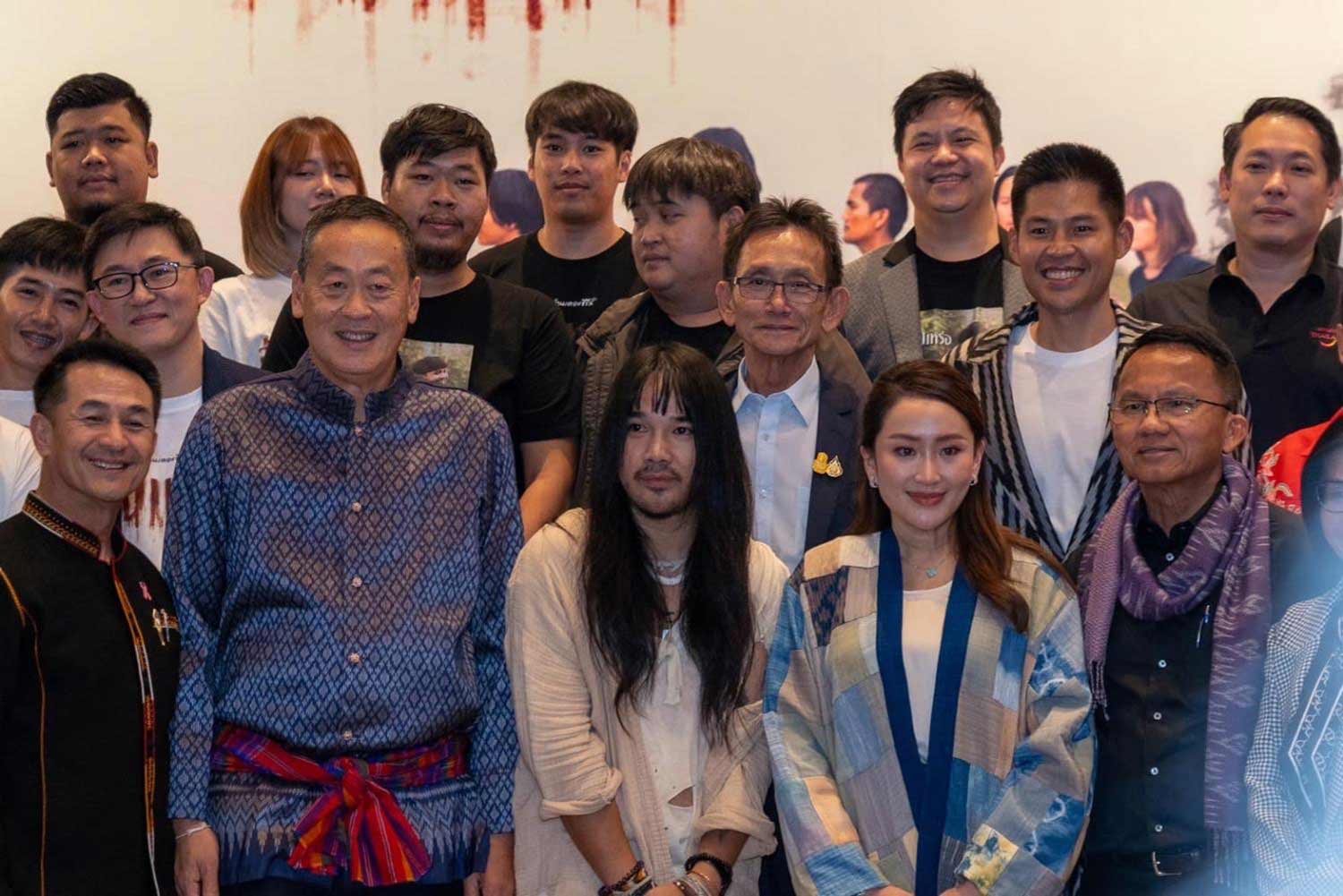
When Prime Minister Srettha Thavisin led members of his cabinet on Wednesday to watch Sap-Pa-Rer (The Undertaker), which has earned more than 500 million baht since it hit local theatres early this month, it was not about him socialising with his team.
Joining the prime minister was Paetongtarn “Ung Ing” Shinawatra, the newly elected leader of the ruling Pheu Thai Party, who also serves as deputy chairwoman of the national committee on soft power strategy and heads the national committee on soft power development.
Just hours before the cinema visit, the national committee on soft power development held its first meeting, in which 12 panels were appointed to draw up urgent, six-month and one-year plans to promote the country’s soft power and generate revenue.
Mr Srettha’s movie night not only underlines the Pheu Thai-led government’s commitment to enhancing soft power to drive economic prosperity but also highlights Ms Paetongtarn’s role in the initiative.
Given her roles in these committees, the success or failure of the government’s soft power policy lies with Ms Paetongtarn, while the job is also widely seen as a big step forward in her political career.
The Bangkok Post has talked to individuals responsible for implementing the soft power policy about their aims, and other stakeholders about their expectations.
A creative economy
According to Dr Surapong Suebwonglee, a member of the national committee on soft power development, the initiative is aimed at helping Thailand break free from the middle-income trap.
The current economic structure is unlikely to provide a solution, and a study into the economic structures of other countries suggests a shift away from low-skilled labour is now of the utmost necessity, he said.
“Moving to sectors that require high-skilled workers and creativity is important. We will have to reskill our workforce so they meet the demands of the market, have jobs and income security,” said Dr Surapong.
The government’s soft power policy will support Pheu Thai’s “one family, one soft power” initiative, which is based on the idea that after receiving training, at least one family member should be able to earn a minimum of 200,000 baht per year.
Among the industries with vast potential to support the creative economy are food, sports, fashion, music and film, and the government must strengthen them so they can be competitive in the global market, he said.
“Films are a powerful tool to promote other products, too. Take South Korea as an example. We believe in a comprehensive approach covering all aspects including reskilling the workforce and strengthening target industries,” he said.
Preparations are under way to register those interested in acquiring new skills, with the goal of enrolling 1 million people in the first year and 20 million within four years. While all family members are allowed to register, only one per household can take part in the initial phase, he said.
Dr Surapong sounded a note of optimism about the policy, pointing out that 11 industries have a say on the national committee on soft power strategy.
Their expertise and in-depth knowledge, including legal and financial constraints, will make a valuable contribution, he said, adding research will also be conducted to develop the policy.
Regarding its economic value, he said the government expects the policy will generate worldwide interest, resulting in increased tourism and demand for these products estimated at 10 trillion baht per year, as well as a yearly income of 200,000 baht per family.
Dr Surapong also expressed confidence Ms Paetongtarn would be up to the job, saying she is dedicated to turning the policy into action and her work is an important step in her political career.
“She has been committed to her political work since stepping in as head of the Pheu Thai Family. She gave her best during the campaign and she is now helping with one of the key government policies. It is an opportunity for her to prove herself,” he said.
Individual households
The “One Family, One Soft Power” strategy bears a striking resemblance to the “One Tambon One Product” (Otop) programme launched over a decade ago to support unique, locally made products from tambon all over the country.
Culture Minister Sermsak Pongpanich said the soft power initiative focuses on creating jobs for individual families rather than the broader community.
The policy aims to develop 20 million creatively skilled families with earnings of at least 200,000 baht each per year, he said.
“To address poverty, targeting individual households can generate a better result. At the tambon level, some households may not participate. But the family-focused approach gives us a clear and specific policy,” he said.
The soft power programme hinges on the collaboration of the private and public sectors, with the Culture Ministry poised to promote the social aspects and make it appealing on an international scale.
Moreover, the ministry has a vast pool of resources to contribute to the development of high-skilled workers for the performing arts sector, he said.
In addition to preparing the workforce for the creative economy, the government must listen to suggestions from the private sector and address any issues they face.
On Ms Paetongtarn’s role in promoting soft power, Mr Sermsak said he has no doubts in her capability and dedication.
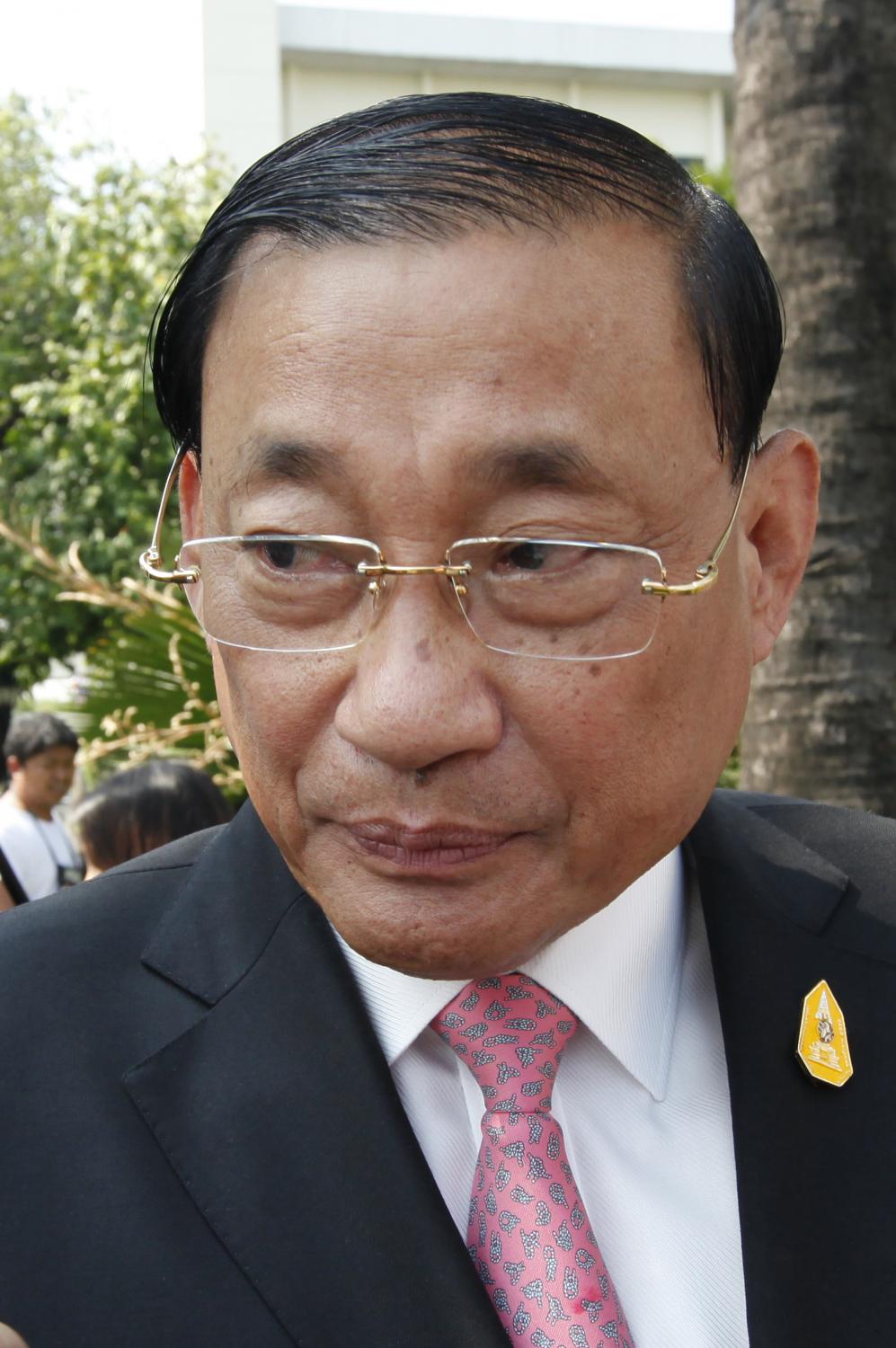
Sermsak: Jobs for individual families
Defining soft power
Siripong Angkhasakulkiat, the producer of Sap-Pa-Rer, welcomed the government’s policy to support the Thai film industry and soft power development but urged the government to first ensure people understand what soft power really is.
In his view, soft power is not a product, but the process of creating an appeal to something. While films can serve as tools promoting the country’s soft power, they are not necessarily soft power in their own right.
“It’s not wrong to see films or gaming as forms of soft power, but soft power isn’t mangos, durian or something like that. But if you watch a movie and it makes you feel like eating a mango or a durian — it’s more like that.
“Soft power is about the process of making people interested in experiencing a culture or product,” he said.
As for film production, he said that in the past, state agencies tended to provide support to projects that aligned with the government’s policy, despite this potentially being counterproductive.
Instead of telling film producers what kind of movies to make, the government should set a general theme and allow them to work within that framework to retain their creativity, he said.
“If the government wants to promote Thai fabrics or food like sticky rice and mangos, just give them the general idea rather than telling them what content they should create. That would generate more diversity and draw more people in,” he said.
Mr Siripong said the economic value of the soft power policy is potentially huge, but not every project is a guaranteed success. If a budget of 100 million baht were to be set aside for the film industry to make a dozen films, it could result in a 100-fold financial return, or a dozen turkeys.
That financial support would not be completely wasted, however, because the money is being spent on giving people jobs and generating economic activity.
“Sap-Pa-Rer has earned more than 500 million baht at the box office, but I think more than one billion baht has changed hands because people also spend money on food and beverages. Some theatres make more money from F&B sales than ticket sales,” he said.

Siripong: Know what soft power is first
Patience needed
Kong Rithdee, deputy director of the Thai Film Archive, said the success of Sap-Pa-Rer didn’t spring out of thin air; rather, it is a product of experience collected over seven or eight years, and the government should not get overly excited about it.
He said the soft power policy is highly appreciated but it needs to be implemented systematically.
When it comes to the film industry, the government should not focus solely on filmmakers as audiences are equally important, he said, adding the government should give the industry time to mature instead of pulling the plug in case it fails in the first few years.
On film censorship, he said countries such as South Korea and Japan, as well as some European nations, eschew this as they appreciate how movies can portray cultures and greater diversity while contributing to a nation’s soft power.

Kong: Give industry time to mature
Wichai Charoentra, who owns an outdoor mall in the Thong Lor area, said developing Thailand’s soft power deserves government support because it can drive significant and sustainable growth.
He said the previous government’s soft power promotion policy focused on on food, fashion, films, festivals and fighting but it did not accomplish much and the creative economy has since been left to grow without any clear sense of direction.
Pointing out how many people tend to be driven by fads, Mr Wichai expressed concern that the government’s interest in supporting the film industry could be short-lived, adding the industry would not be able to attract and retain talent if that proves to be the case.
“I hope the government is serious about turning this policy into action because it already has soft power committees. Make it a national agenda item, because it can trigger sustainable growth much more effectively than the digital wallet programme,” he said.
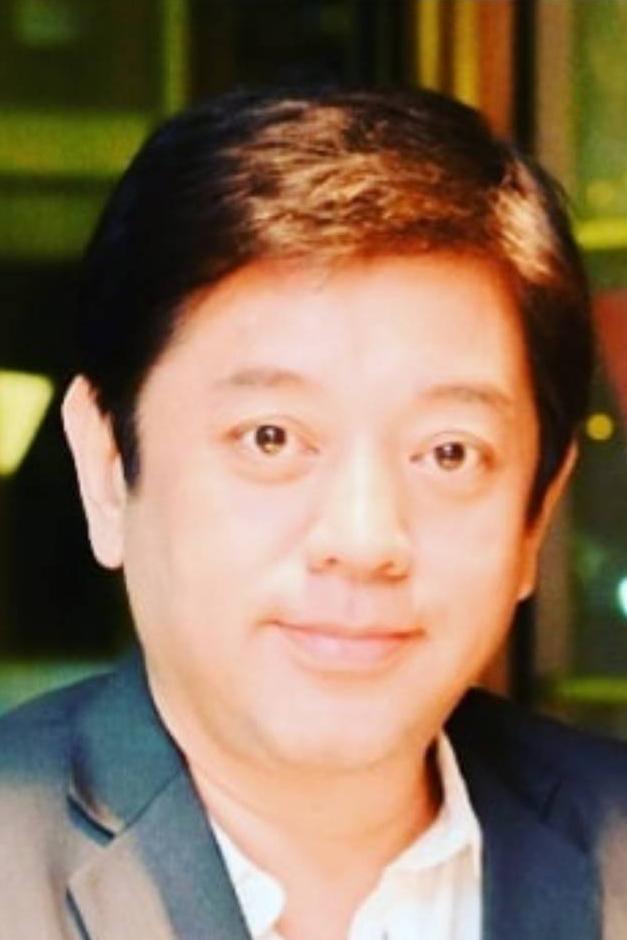
Wichai: People tend to be driven by fads
Ministry urges all Thai workers to come home
PUBLISHED : 29 Oct 2023 at 06:58

The Ministry of Foreign Affairs (MFA) on Saturday issued an urgent update to all Thai workers living in Israel to return to Thailand as quickly as possible because Israel is stepping up attacks against Palestinian terror group Hamas.
The Israel Defence Forces (IDF) said it would expand ground and air operations with heavy bombardments overnight.
The bombardment aggravated the situation and prompted the United Nations to call for a humanitarian ceasefire.
In response, the MFA posted on its Facebook page on Saturday, warning all Thai workers in Israel to return to Thailand due to concern over their safety.
Data suggested the fighting area might have expanded which would affect internal transport and evacuation.
Those who want to return to the country can contact the David Intercontinental Hotel, or the shelter centre via 050-443-8094 or the embassy via 055-271-2201, 053-245-2826 and 054-636-8150 phone number.
Regarding evacuation flights at Don Mueang International Airport on Saturday, 134 Thais arrived at the airport with Lion Air flight SL7005 at 2.50am, 179 Thais arrived with Air Asia flight FD8754 at 4.50am and 180 more Thais via Nok Air flight DD9089 by midnight.
Meanwhile, Prime Minister Srettha Thavisin posted on his X (Twitter) account that the government was worried about the safety of Thai workers still in Israel.
The government is also urging families to persuade relatives to return.
Separately, a family in Kumphawapi district of Udon Thani were relieved but concerned to discover their 32-year-old son, Watchara Sriuan, is alive and being held hostage, after they lost contact with him for almost 22 days.
Hamas on Oct 7 took people hostage including Thai workers in their Oct 7 attack in the Gaza Strip.
“We were delighted to see Tee [Mr Watchara] is still alive. Although he is being held hostage, Hamas might release my son and all Thais back to their family in Thailand,” said Ms Viewwaew, Mr Watchara’s mother.
Ministry backs longer openings
Anti-alcohol group flags huge fund
PUBLISHED : 29 Oct 2023 at 05:14
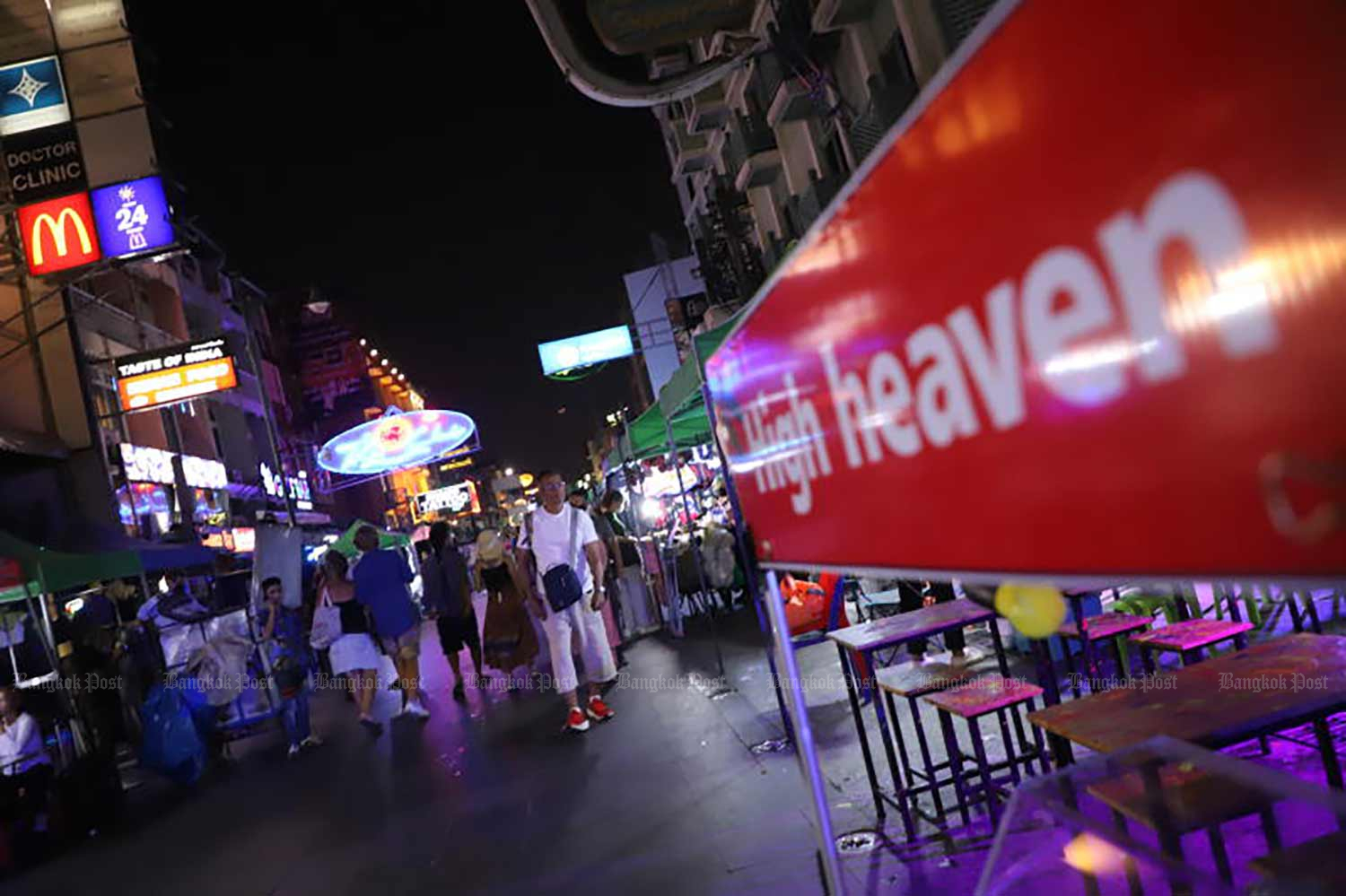
The Public Health Ministry has no objection to the government’s proposal to extend the operating hours of nightspots, though it says preventive measures must be in place when the regulation is introduced.
An anti-alcohol drinking advocacy group, meanwhile, urged the government to put the proposal on hold unless it can come up with measures to handle the repercussions of the change.
It has proposed a huge fund drawn from the liquor industry to provide assistance to people affected.
Public Health Minister Dr Cholnan Srikaew said on Saturday the ministry is ready for the proposed regulation because its approval must be based on three criteria: clear zoning for entertainment venues; target groups; and preventive measures.
However, Wissanu Srithawong, a manager for public policy of the StopDrink Network, said the policy is likely to do more harm than good. If the government is really set on it going ahead, proactive measures should be put in place first, he said.
Citing surveys, he also claimed most people do not support it.
The government’s proposal to extend the operating hours of nightspots to 4am is based on a projection that it will increase tourism revenue.
Mr Wissanu said the number of people who are expected to benefit from the regulation is relatively small and the policy itself will affect more than 70% of people who do not drink.
He said ameliorative measures are a must if the government insists on pushing ahead. One idea is to create a fund, with money drawn from the liquor and related industries, to provide compensation to anyone affected.
He said the fund should start with five billion baht to 10 billion baht per year. It could cover expenses for those who need medical treatment to help them quit drinking.
“Healthcare agencies are still debating who should pay for medication to help treat alcohol abuse, estimated at 100,000 baht per head.
“The five to 10 billion baht fund is a good start because drinking doesn’t only cause injuries and deaths but also financial problems and family issues,” he said.
He said night entertainment venues are part of the problem and so they should pay, adding how much each industry should contribute should be studied.
Commentary: Should commuters be banned from watching loud videos on their phones while on public transport?

That unacceptable noise is hazardous to health is well-documented.
According to the US Environment Protection Agency, noise pollution is “a growing danger to the health and welfare of the nation’s population”. The European Environmental Agency (EEA) ranks noise second only to air pollution as the environmental exposure most harmful to public health.
Notwithstanding these pronouncements, threats posed by noise remain “often underestimated” by government agencies, according to the International Commission on Biological Effects of Noise.
Research has shown that noise pollution not only drives hearing loss, it is also linked to many non-auditory health conditions such as hypertension, cardiovascular disease, diabetes, mental health and cognition problems and low birth weight in babies.
The city of Mumbai takes noise on public transport seriously. In April, transport body Brihanmumbai Electric Supply and Transport announced that bus passengers would be barred from having loud conversations on their phones and watching videos or playing audio without headphones. Those flouting the rule may be fined up or jailed under a law that prohibits “continuance of music, sound or noise … to prevent annoyance, disturbance, discomfort or injury to the public”.
Just last month, two members of parliament in Brussels tabled a motion for a resolution to punish users of excessively loud smartphones in public transport in the Belgian capital. One of them remarked: “Some people still do not seem to be aware that using a (smartphone) loudspeaker can be a real nuisance to the people around them. I am astounded by the number of people who adopt such behaviour.”
Commentary: His son’s election run could tarnish Jokowiâs legacy
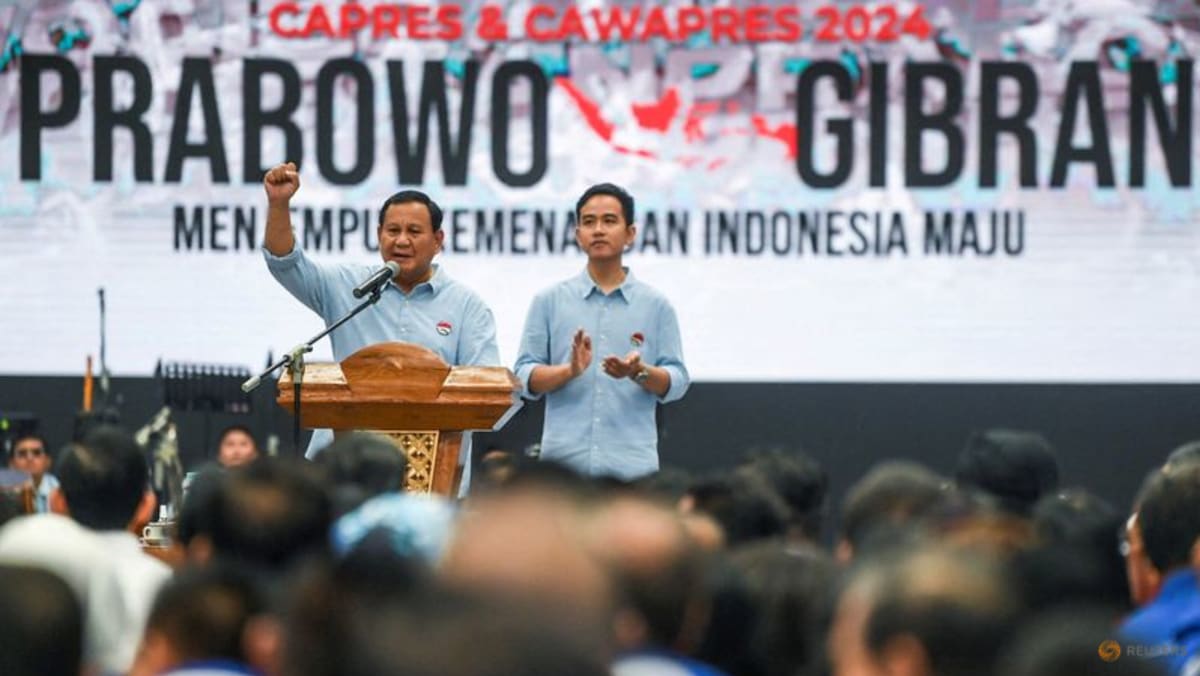
On Monday, the Constitutional Court established a probe into the Oct 16 decision following seven petitions demanding an investigation. This will be conducted by an ethics council, consisting of a court justice and two outside legal authorities, which may not overturn the ruling but it could recommend dismissal of any justice for unethical behaviour.
On the same day, a civil society group TPDI reported Mr Jokowi, Mr Anwar Usman, Mr Raka, and Jokowi’s second son, Mr Kaesang Pangarep, to the Corruption Eradication Commission (KPK) for alleged collusion and nepotism in the Constitutional Court’s Oct 16 ruling. Mr Pangarep, 27, chairs the Solidarity Party of Indonesia that engages young people, and the party has endorsed the Subianto-Raka ticket, making it a nine-party coalition.
Asked about the complaint against him, Mr Raka simply replied, “Let the KPK follow it up.”
But the apparent nonchalance could mask trouble for Mr Raka. His party, PDI-P, gave him the platform to become a city mayor. Mr Subianto, meantime, heads his own party, Gerindra. It is far from clear whether PDI-P and its influential chief in former president Megawati Sukarnoputri will be keen for any relationship – or whether Mr Raka will be regarded as disloyal.
On Thursday evening, a PDI-P official said Mr Raka’s membership “in de facto terms” ended with his registration as a candidate for another party. This could potentially split support for PDI-P’s own presidential hopeful, former Central Java governor Ganjar Pranowo.
There is a strong “ProJo” (pro-Jokowi) body of supporters that campaigned for Jokowi in 2014 and 2019 and have since vocally supported Mr Subianto. The third presidential candidate trailing behind Mr Subianto and Mr Pranowo in polling is past Jakarta governor Anies Baswedan.
Commentary: âLike it was with Jack Maâ: China puts worldâs biggest Apple supplier in its crosshairs

IRKED BY TERRY GOU’S PRESIDENTIAL BID
Beijing has made clear that Gou – who stepped down from Foxconn’s board last month but still holds a 12.5 per cent stake – has violated that rule.
His presidential bid has irked the Chinese leadership because it further fragments votes for Taiwan’s opposition and makes a victory for the Democratic Progressive party – which refuses to define the island as part of China – more likely, said a person close to Foxconn.
China claims Taiwan as part of its territory and threatens to annex it militarily if the island resists unification indefinitely.
A person familiar with Foxconn said management was not overly worried about the investigation because China’s frequent tax audits of foreign enterprises regularly hit its affiliates, simply due to the scale of its business. “But the link to the election is concerning because it drags us into politics,” he added.
On Wednesday, the Chinese government’s Taiwan Affairs Office (TAO) said in its first comment on the probe: “While enjoying the dividends of economic growth, Taiwanese companies on the mainland also need to assume appropriate social responsibilities and play a constructive role in promoting peaceful development in cross-strait relations.”
The same phrase appeared in the state media report that publicised the investigation last weekend. This, and the fact that the news was leaked by the Communist party tabloid Global Times citing a Taiwan affairs scholar, pointed to an attempt by the TAO to send a political message, said a senior Taiwanese government official.
China has frequently leaned on Taiwanese businesses to support the Kuomintang, the opposition party that views Taiwan as part of a greater Chinese nation, in past elections. But apart from small-scale tax, labour or environmental audits, Beijing has reserved crackdowns for enterprises viewed as pro-DPP.
The fact that the Chinese leadership is now giving similar treatment to Foxconn and Gou – viewed in Taiwan as the most pro-China on the spectrum – speaks of the dramatic changes under way in Beijing, Taiwanese observers said.
“Such rough treatment of a foreign company would have been unthinkable under Deng Xiaoping, Jiang Zemin or Hu Jintao,” said a senior government official, referring to Chinese leader Xi Jinping’s three predecessors.
Beyond politics, Foxconn executives believe Beijing wants to warn the company not to shift too much production capacity out of China, which could threaten hundreds of thousands of jobs at a time when the country is under growing economic stress.
“Other Taiwanese companies have been moving out gradually, quietly, but Foxconn is an elephant – they are just too big to do that,” the government official said.
Others believe the opposite could be true. “As supply chains split, the goal is to have their own companies take over electronics manufacturing in China,” said Liu, the CIER economist. “The Chinese government may just have concluded that they do not need Foxconn any more the way they did.”
With Taiwan’s election less than three months away, Gou has resorted to a low profile and suspended all campaign activity since the probe was announced. But he will have to reappear in four weeks at the latest, when all presidential hopefuls have to register their candidacy.
“On Nov 24, we will see if Gou keeps his word and cannot be threatened by the Chinese Communist party,” said the Taiwanese government official.
‘To us, it matters’: A couple’s fight for their stillborn twins to be officially named in Singapore

SINGAPORE: After their twins Abigail and Lara were stillborn, all Ms Mandy Too and Mr Aidan Hoy had to remember them by was a document titled “Notification of a Still-Birth”.
On each document were details such as the hospital where they were born, their weight and their parents’ names.
But missing was a detail that the grieving parents had hoped for – their daughters’ names.
Instead, handwritten by hospital staff on the top right-hand corner of the documents were the words “Twin 1” and “Twin 2”.
“It felt wrong that there was no space for their names,” said Ms Too.
“You’re basically saying it doesn’t matter what their names are, it doesn’t matter who they are. They’re dead, who cares, you know?”
The notification documents, issued after Abigail and Lara were stillborn in August 2021, were meant matters such as funeral arrangements. If Ms Too and Mr Hoy wanted to keep the documents, they had to make a copy for themselves.
“It was so cold. It just felt like okay, they want to know how much your baby weighed, but doesn’t matter who they are. We just want to know how heavy they were when they died,” said Ms Too. “It was so upsetting.”
Parents of newborns now get digital birth and death certificates, which were introduced in May last year as part of the government’s efforts to streamline and digitalise services.
But parents of stillborn babies get digital stillbirth certificates where the children’s names are not listed.
“Even though they were not officially alive or officially born … we lived with them for eight or nine months and we could see their personalities starting to show,” said Mr Hoy.
“It’s all about affording dignity to their life.”
FOR THE PARENTS
So Ms Too wrote to the Immigration and Checkpoints Authority (ICA), which oversees birth and death registration services, hoping she could get the twins’ names included in their stillbirth notification documents.
“I was so desperate for some kind of official recognition,” she said.
Even if she couldn’t get it for her twins, she hoped the authorities would do it for future stillbirths. “Then anyone else who has a stillbirth after us, at least that would help,” Ms Too said.
ICA’s response to her was that names are only registered for children who are born alive, so that they are “identified accordingly in the provision or use of government services throughout their lives”.
“I got really frustrated … I know you don’t need it, it is not for you to make use of the name. It is just for the parents, for the families, to have something that records their child. Because to us, it matters.”

